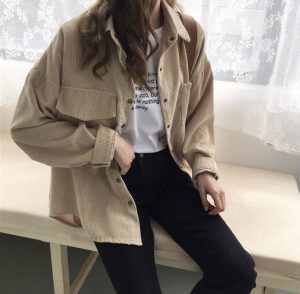“The Benefits of Eco-Friendly Clothing: Environmental, Social, and Personal”

Title: The Benefits of Eco-Friendly Clothing: Environmental, Social, and Personal
Introduction:
In an era of heightened environmental awareness and social responsibility, the fashion industry is experiencing a shift towards eco-friendly clothing options. From sustainable materials and ethical production practices to conscious consumption and waste reduction, eco-friendly clothing offers a multitude of benefits that extend beyond personal style. By choosing eco-friendly clothing, individuals can make a positive impact on the environment, support ethical labor practices, and enjoy personal benefits such as improved quality and well-being. Let’s explore the myriad benefits of eco-friendly clothing across environmental, social, and personal dimensions.
1. Environmental Benefits:
Eco-friendly clothing is produced using sustainable materials and production methods that minimize environmental impact and promote resource conservation. Some key environmental benefits of eco-friendly clothing include:
– Reduction of Water Usage: Eco-friendly materials such as organic cotton and hemp require less water to grow compared to conventional cotton, thereby reducing water consumption and preserving freshwater resources.
– Decrease in Chemical Usage: Eco-friendly clothing is often made using natural or organic fibers that are grown without the use of synthetic pesticides or fertilizers, reducing chemical pollution and minimizing harm to ecosystems.
– Mitigation of Carbon Footprint: Sustainable production practices such as carbon-neutral manufacturing and renewable energy usage help reduce greenhouse gas emissions and combat climate change, contributing to a healthier planet for future generations.
– Preservation of Biodiversity: By supporting eco-friendly clothing brands that prioritize biodiversity conservation and land stewardship, consumers can help protect natural habitats and promote wildlife conservation efforts.
2. Social Benefits:
In addition to environmental considerations, eco-friendly clothing also supports ethical labor practices and promotes social justice within the fashion industry. Some social benefits of eco-friendly clothing include:
– Fair Wages and Labor Conditions: Eco-friendly clothing brands often prioritize fair wages, safe working conditions, and labor rights for garment workers, ensuring that employees are treated ethically and with dignity throughout the supply chain.
– Support for Artisan Communities: Many eco-friendly clothing brands partner with artisan communities and small-scale producers to create handcrafted and ethically made garments, providing sustainable livelihoods and economic empowerment for marginalized artisans.
– Transparency and Accountability: Eco-friendly clothing brands are often transparent about their production processes and supply chain practices, allowing consumers to make informed choices and hold brands accountable for their social and environmental impact.
– Community Engagement: Eco-friendly clothing brands may engage in community development initiatives, such as education and skill-building programs, to empower local communities and foster social cohesion and resilience.
3. Personal Benefits:
Beyond the environmental and social considerations, choosing eco-friendly clothing can also offer personal benefits that enhance quality of life and well-being. Some personal benefits of eco-friendly clothing include:
– Higher Quality and Durability: Eco-friendly clothing is often made with high-quality materials and craftsmanship, resulting in garments that are durable, long-lasting, and resistant to wear and tear.
– Healthier Materials: Eco-friendly clothing is free from harmful chemicals and synthetic additives commonly found in conventional textiles, reducing the risk of skin irritation, allergies, and respiratory issues associated with exposure to toxins.
– Unique and Expressive Style: Many eco-friendly clothing brands offer unique and distinctive designs that reflect creativity, craftsmanship, and cultural heritage, allowing individuals to express their personal style and individuality through their clothing choices.
– Sense of Purpose and Connection: Choosing eco-friendly clothing aligns with values of sustainability, social responsibility, and ethical consumption, fostering a sense of purpose and connection to broader movements for positive change in the fashion industry and beyond.
Conclusion:
Eco-friendly clothing offers a wide range of benefits that extend beyond personal style to encompass environmental, social, and personal dimensions. By choosing eco-friendly clothing options made with sustainable materials, ethical production practices, and conscious consumption habits, individuals can make a positive impact on the planet, support ethical labor practices, and enjoy personal benefits such as improved quality and well-being. As the demand for eco-friendly clothing continues to grow, so too does the potential for positive change in the fashion industry and beyond.






